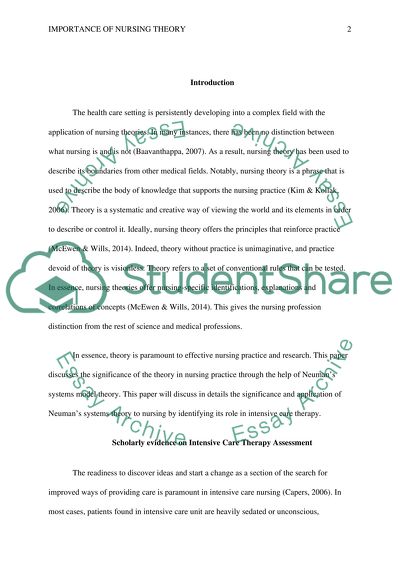Cite this document
(“Importance of Theory Essay Example | Topics and Well Written Essays - 1250 words - 1”, n.d.)
Importance of Theory Essay Example | Topics and Well Written Essays - 1250 words - 1. Retrieved from https://studentshare.org/nursing/1662807-importance-of-theory
Importance of Theory Essay Example | Topics and Well Written Essays - 1250 words - 1. Retrieved from https://studentshare.org/nursing/1662807-importance-of-theory
(Importance of Theory Essay Example | Topics and Well Written Essays - 1250 Words - 1)
Importance of Theory Essay Example | Topics and Well Written Essays - 1250 Words - 1. https://studentshare.org/nursing/1662807-importance-of-theory.
Importance of Theory Essay Example | Topics and Well Written Essays - 1250 Words - 1. https://studentshare.org/nursing/1662807-importance-of-theory.
“Importance of Theory Essay Example | Topics and Well Written Essays - 1250 Words - 1”, n.d. https://studentshare.org/nursing/1662807-importance-of-theory.


